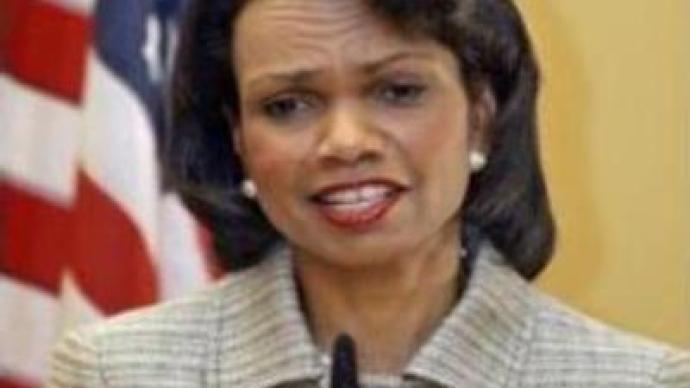Russia & U.S. agree to intensify dialogue

U.S. Secretary of State Condoleezza Rice has met Russian officials including the President and the Foreign Minister. Both sides admitted they need to improve their partnership and tone down rhetoric that has caused real tensions.
However, the sticking points remain the same – the status of Kosovo and the deployment of a missile defence system in Eastern Europe.Most of the Moscow talks were held behind closed doors, but at a final news conference Secretary Rice held with her Russian counterpart Sergey Lavrov the biggest bones of contention were brought to the table. Moscow continues to stand its ground in regards to the U.S. antimissile defence elements in Eastern Europe, calling them a threat to national security. Washington, though, is not prepared to back down. “We are continuing to talk about it [the current plans on missile defence deployments]. It is still quite a long time until such deployments would come into being. And we very much value the opportunity to discuss the issue with Russia and to talk about the emerging threats – although ultimately we may see these threats differently,” stated Ms Rice.Bridging the gap may well be difficult – but both sides seem to be eager to find compromises. And one way of doing that, according to the diplomats, is intensifying communication.“Indeed, what we want to do is to prevent misunderstandings that somehow become larger than they should. We have agreed to intensify our dialogue and our consultation,” Condoleezza Rice said.Steps towards that are already being planned. Thus, a 2+2 format meeting is to take place in Moscow later in the year – with the countries' foreign and defence ministers gathering to try and see eye to eye. Both the Russian Foreign Minister and the U.S. Secretary of State dismissed talks of the relationship regressing to a Cold War state. But even though both were civil, the diplomats clearly stood by their views on the issues causing discord.The status and future of the Serbian province of Kosovo is something Moscow and Washington cannot agree upon. The U.S. supports the current United Nations resolution under review, drawn up by Martti Ahtisaari, which calls for Kosovo's independence. Russia does not see the plan as encompassing the complexity of the relations between Belgrade and Pristina – and has recently warned of using its right of veto at the Security Council, should the draft resolution be pushed ahead. Condoleeza Rice confirmed that while talks continue the only conclusion the two sides have come to is the need for more talks.“The Ahtisaari plan provides a good basis. The resolution that was introduced by France is a good start for how the international community might move forward on the issue of status for Kosovo,” believes Ms Rice.Sergey Lavrov was more exact in his resume of the situation – but he in turn stressed the necessity to communicate and minimise the areas of misunderstanding. “The Unites States believes there is no other way but to accept Ahtisaari’s plan. Russia believes there is no other way but to continue talks. We voiced our reasons to each other today and heard them. So far no conclusion has been found, but we are minimising the areas of misunderstanding and that is one of our priorities. On the other hand, understanding of each other’s positions does not mean we agree. But we see the reasons and the consequences each side foresees for itself at various outcomes,” said Mr Lavrov.Many more issues were raised during the two-day visit of the U.S. Secretary of State. Even it was flagged as an attempt to improve relations, analysts say dramatic changes were always unlikely. “I don’t think it will mean a real change in the relationship because too many factors are involved but definitely it might help to slow down the deterioration of relations – and maybe even reverse certain trends,” believes President of the New Eurasia Foundation, Andrey Kortunov.
You can share this story on social media:












